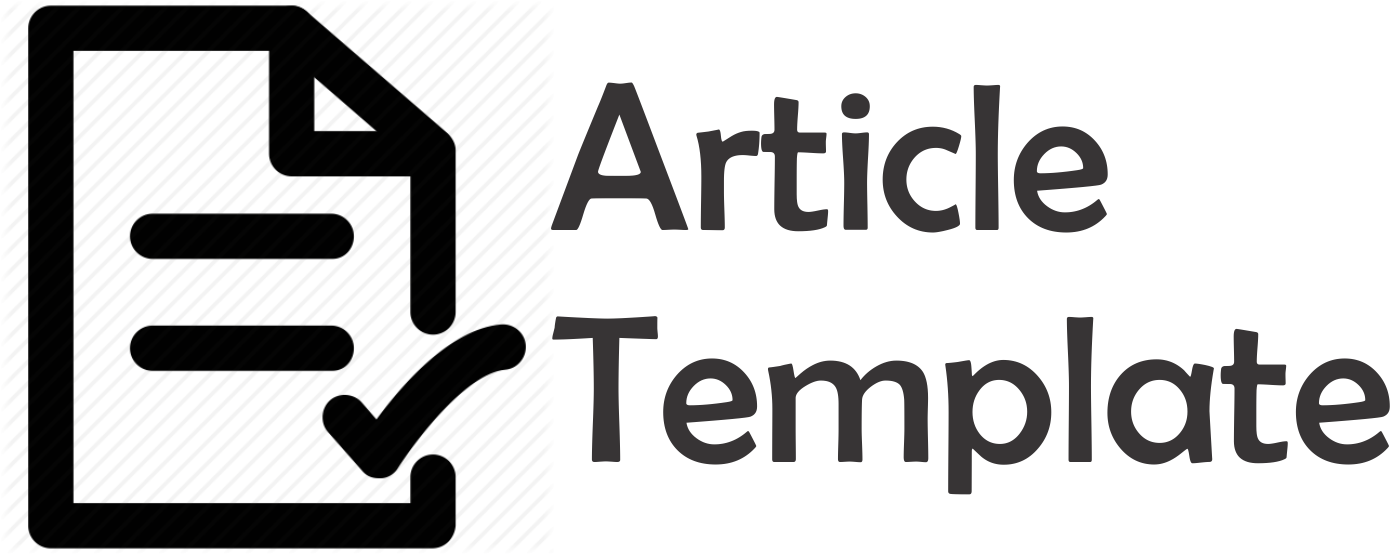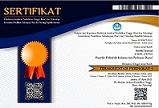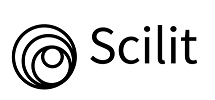- Focus and Scope
- Section Policies
- Peer Review Process
- Open Access Policy
- Archiving
- Publication Ethics
- Author Fees
- Plagiarism Policy
- Indexing and Abstracting
Focus and Scope
Focus and Scope
Aurelia publishes several articles based on original and innovative research to provide readers with the latest knowledge along with research on fisheries and marine science technology and management development.
Scope:
Marine Fisheries Technology, Fisheries Agribusiness, Aquaculture Management and Technology, Fisheries Processing Technology, Fisheries Mechanization, Fishing Vessel Systems and Control, Aquatic Resource Management, Marine Science and Technology, Local Wisdom of Fisheries Communities, Marine and Fisheries Policy.
Section Policies
Articles
Peer Review Process
The Editor-in-Chief will assign the manuscript to the appropriate section editor for further handling. The section editor will ask at least two scientists to review the manuscript. Based on the comments of the reviewers, the Section Editor, and the Editor-in-Chief will decide on the manuscript.
Open Access Policy
The journal provides direct open access to its content based on the principle that making research freely available to the public supports greater global knowledge exchange.
Archiving
This journal utilizes the LOCKSS system to create a distributed archiving system among participating libraries and permits those libraries to create permanent archives of the journal for purposes of preservation and restoration. More...
Publication Ethics
Publication Ethics
The publication code of ethics statement is a statement of the code of ethics of all parties involved in the publication process of this scientific journal, namely managers, editors, bestary partners, and authors. This scientific publication code of ethics statement is based on the Committee on Publication Ethics adopted by the Head of LIPI Regulation Number 5 of 2014 concerning the Code of Ethics for Scientific Publications. In essence, the Code of Ethics for Scientific Publication upholds three ethical values in publications, namely (i) Neutrality, which is free from conflicts of interest in the management of publications; (ii) Fairness, which gives authorship rights to those entitled as authors; and (iii) Honesty, which is free from duplication, fabrication, falsification, and plagiarism (DF2P) in publications.
Duties and Responsibilities of the Journal Manager
- Determine the journal name, scientific scope, periodicity, and accreditation if required,
- Define the relationship between the publisher, editors, reviewers, and other parties in a contract,
- Respect the confidentiality of contributing researchers, authors, editors, and reviewers,
- Apply norms and provisions regarding intellectual property rights, especially copyright,
- Review journal policies and communicate them to authors, the editorial board, bestary partners, and readers,
- Create a code of conduct guide for editors and bestary partners,
- Publish the journal regularly,
- Ensure the availability of funding sources for the sustainability of journal publishing,
- Building cooperation and marketing networks.
Duties and Responsibilities of the Journal Editor
- Unite the readers and writers needs,
- Strive for continuous improvement of publication quality,
- Implement a process to ensure the quality of published papers,
- Prioritizing freedom of expression,
- Maintaining the integrity of the author's academic track record,
- Submitting corrections, clarifications, withdrawals, and apologies when necessary,
- Responsible for the style and format of the paper, while the content and all statements in the paper are the responsibility of the author,
- Support initiatives to educate researchers about publication ethics,
- Have an open mind to new opinions or views of others that may conflict with personal opinions,
- Not defend one's own, the author's, or a third party's opinion that may result in a non-objective decision,
- Encourage the author to improve the paper so that it is fit for publication,
- In the process of reviewing and accepting manuscripts, journal editors are based on the principle of equal treatment by not distinguishing the race, gender, religion, ethnicity, nationality, or political ideology of the author,
- Deciding which manuscripts are suitable for publication, referring to applicable legal requirements regarding defamation, copyright infringement, duplication, fabrication, falsification, and plagiarism,
- Maintain the confidentiality of any information about the submitted manuscripts and not used for personal gain/interest,
- Select and assign bestary partners/reviewers to review the manuscript.
Duties and Responsibilities of Bestary Partners (Reviewers)
- Receive an assignment from the editor to review the manuscript and submit the review as material for determining the eligibility of a paper for publication,
- Do not review manuscripts that involve themselves, either directly or indirectly,
- Review manuscripts objectively, and supported by clear arguments,
- Maintain the confidentiality of the author by not disseminating the results of corrections, suggestions, and recommendations on the manuscript he/she reviews, and not using them for personal gain/interest,
- Encourage authors to improve their manuscripts.
- Review the manuscript in a timely manner in accordance with the journal's style and based on scientific principles (data collection methods, author's legality, conclusion drawing, etc.).
Author Duties and Responsibilities
- Ensure that those included in the author list meet the criteria as authors,
- Place the name of the supervisor if the proposed manuscript is part of a thesis, dissertation, or internship report,
- Place the name of the student, if the research for this manuscript involves students,
- Affix the names of colleagues/members of the research team, if the research for this manuscript involves several co-researchers.
- Place the author's institution,
- The corresponding author must be equipped with an email address and full address of the institution,
- Must write the manuscript ethically, honestly, and responsibly, under applicable scientific writing regulations, free from duplication, fabrication, falsification, and plagiarism,
- Responsible for the research and content of the manuscript which includes methods, analysis, calculations, and details,
- Make a statement that the manuscript submitted for publication is original, has never been published anywhere in any language, and is not in the process of submission to another publisher, and all names listed on the manuscript have approved the submitted manuscript,
- Affix every reference cited in the manuscript in the bibliography, and vice versa,
- State the origin of resources (including funding), either directly or indirectly,
- Improve the manuscript with the corrections and directions of the bestary partners until the journal is published,
- Inform the editor if they will withdraw their paper,
- Pay the journal administration fee as specified,
- Do not object if the manuscript undergoes editing in the review and layout process without changing the substance or main idea of the writing.
Author Fees
There are no submission fees, publication fees, or page charges for this journal. Publication costs are covered by the publisher of this journal.
Plagiarism Policy
Plagiarism Policy:
- Articles submitted by authors must be original manuscripts not under consideration for publication and not published by another journal or publisher. This is done through a copyright release to the publisher and a statement on plagiarism completed by the author.
- All submitted works will be checked by anti-plagiarism software. Currently, all articles are checked for plagiarism using free software, but due to limitations in the software database, we started using software checkers this year.
- Articles are reviewed by a competent peer review team in the field as a way to control plagiarism.

















